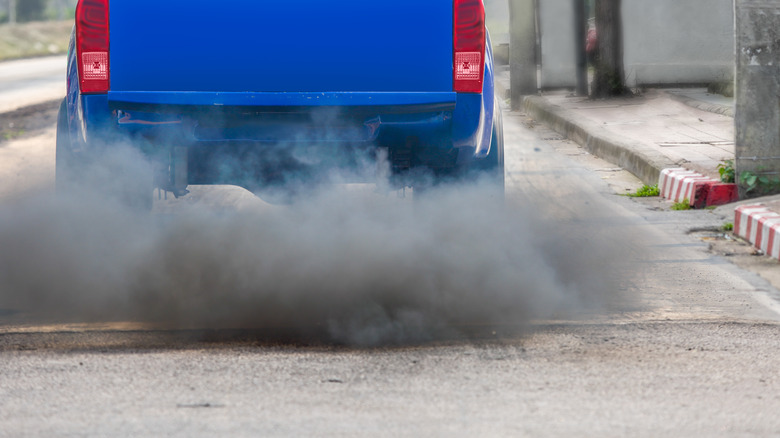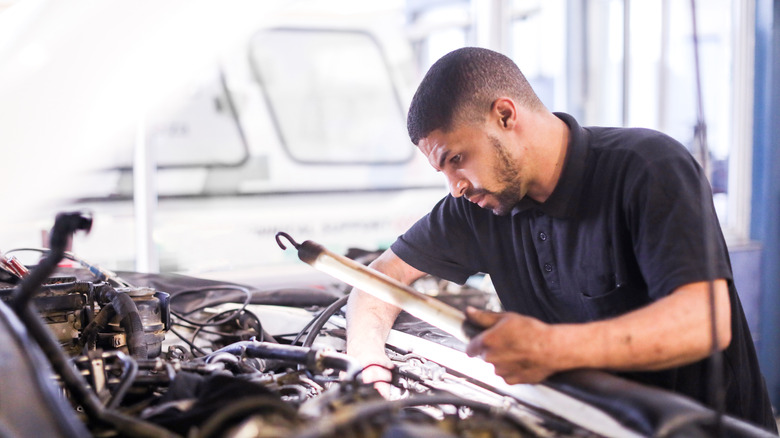What Causes Runaway In Diesel Engines, And Can It Be Stopped?
We all know diesel engines produce Earth-moving torque to outclass gas engines in pulling power and heavy-duty workloads. We also know that diesels could outlive a similar gas engine, given proper care and maintenance over its lifespan. Without diligent servicing, any machine could suffer breakdowns and unexpected repairs, but a neglected diesel could suddenly "run away" and threaten lives and limbs.
A runaway diesel engine (or an engine running away on its own) is a hazardous condition where the machine revs uncontrollably and is unresponsive to human inputs like shutting off the ignition or taking your foot off the pedal. You read it right: A runaway diesel will keep running and revving to the highest rpm even if you shut the ignition or turn the vehicle off.
The runaway situation typically occurs on older, uncared-for diesels that skipped a few too many oil, coolant, and filter changes. Unlike gas engines that pre-mix air and fuel before combustion, a diesel operates differently. It compresses superheated air and gets injected with a precise amount of diesel fuel at the exact moment during the compression stroke.
This means diesel motors will essentially keep running as long as fuel or combustible material enters the compression chamber. When a diesel "runs away" and has begun ignoring your controls to shut the motor, the engine is already ingesting combustible gasses, crankcase fumes, or engine oil. It will continue revving, smoking, and making all sorts of horrid noises until it uses up all the combustibles or, in the worst-case scenario, self-destructs and blows into smithereens.
How to stop a runaway diesel engine
The most common cause of runaway in diesel engines is an internal oil leak due to bad piston rings, turbocharger seals, cylinder liners, or valve seals. Meanwhile, it could also be due to a failing turbocharger, a faulty crankcase ventilation system, leaky injectors, or a contaminated air intake.
Learning the causes is vital to knowing how to stop a runaway diesel. Since the machine is possibly sucking other combustible materials besides diesel fuel, it will stop "running away" if you cut off the air supply, which is easier said than done when you're dealing with a semi, a diesel locomotive, or larger diesel machinery.
But for smaller diesels like cars, compact or midsize trucks, or mowers, covering the air intake with a thick, non-flammable cloth or any other material will starve the engine of air and end the runaway. If the engine has an emergency shut-off valve, engage immediately once the diesel begins revving uncontrollably. Meanwhile, you could flood the intake with a fire extinguisher (if handy) to choke the engine of air.
If your diesel vehicle has a manual transmission and the engine begins "running away," leave it in gear, press hard on the brakes, and allow the vehicle to stop while the engine chokes and turns off. Whatever you do, DO NOT press the clutch. If the engine successfully shuts down, do not start it again. Your best recourse is to call for help and servicing.
However, if the engine refuses to die even after choking the air or stalling the engine intentionally, leave the vehicle and just let it be. Saving yourself should be more important than trying to kill a runaway diesel.

